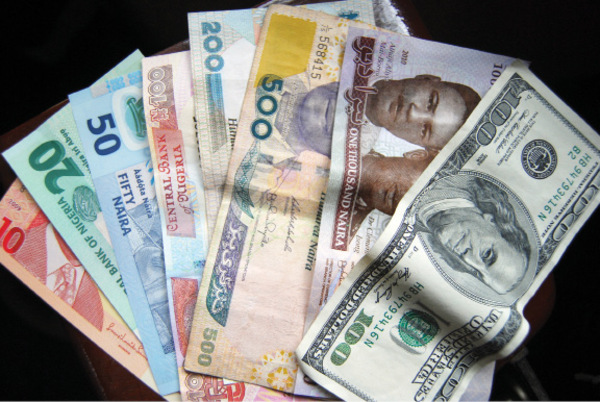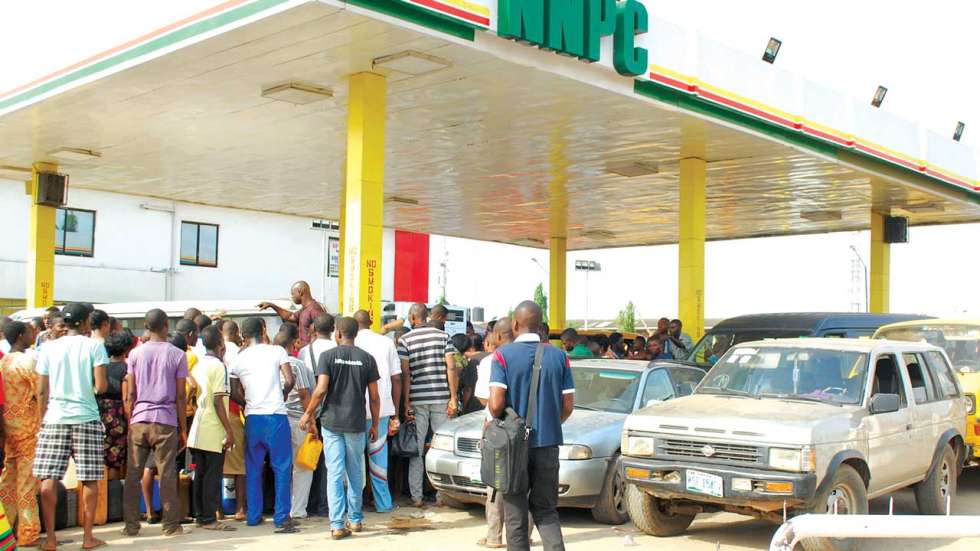Forex Losses Hit Currency Dealers As CBN Slashes BDC Rate To N1,117.5/$
Currency dealers yesterday lamented mounting losses and declining dollar demand as the naira appreciated further in the official and parallel markets, following a 12 per cent or N152.23 reduction in bureaux de change, BDC, exchange rate to N1,117.5 per dollar by the Central Bank of Nigeria, CBN.
Meanwhile, the CBN has banned the use foreign denominated collaterals for naira loans.
It, however, exempted from the ban Eurobonds issued by the Federal Government of Nigeria or Guarantees of foreign banks, including Standby Letters of Credit.
Announcing the ban in a circular, titled “The Use of Foreign-Currency Denominated Collaterals for Naira Loans”, Director, Banking Supervision Department, CBN, Dr. Adetona Adedeji, said: “The Central Bank of Nigeria has observed the prevailing situation where bank customers use Foreign Currency (FCY) as collaterals for Naira loans.
“Consequently, the current practice of using foreign currency-denominated collaterals for Naira loans is hereby prohibited, except, where the foreign currency collateral is: Eurobonds issued by the Federal Government of Nigeria; or Guarantees of foreign banks, including Standby Letters of Credit
Data from FMDQ showed that the naira appreciated by N20.44 to N1,230.61 per dollar in the official market (Nigeria Foreign Exchange Market, NAFEM) yesterday from N1,251.05 per dollar Friday last week.
Similarly, the Naira appreciated in the parallel market by N45 to N1,200 per dollar yesterday from N1,245 per dollar last Friday.
This follows announcement by the CBN that it will this week sell another $10,000 to 1,588 BDCs at N1,101 per dollar, for eligible invisible transactions.
The CBN directed that BDCs should sell to eligible end-users at spread of not more than 1.5 per cent.
This means BDCs will sell to end users at maximum of exchange rate of N1,117.5 per dollar.
Announcing the new rate in a circular yesterday, Dr. W.J Kanya, Trade and Exchange Department, CBN said: “We write to inform you of the sale of $10,000 by the Central Bank of Nigeria, CBN, to BDCs at the rate of N1101/$1. The BDCs are in turn to sell to eligible end users at a spread of not more than 1.5 percent above the purchase price.
“All eligible BDCs are, therefore, directed to commence payment of the Naira deposit to the underlisted CBN Naira Deposit Account Numbers from Today (yesterday), Monday April 8, 2024, and submit confirmation of payment with other necessary documentation for disbursement at the appropriate CBN branches’.
Currency dealers lamented that losses suffered due to the steady appreciation of the naira since beginning of March.
A BDC operator, who spoke on condition of anonymity, said most of the BDCs have incurred losses on the dollars bought from the CBN.
He said the CBN sold dollars to BDCs at N1,251 per dollar, while the dollars were delivered towards the close of business Friday last week.
According to him, most BDCs still have dollars bought at N1,251 per dollar by the time the CBN announced the slash in rate to N1,117.5 per dollar.
“The challenge now is that customers are suspending decision to buy because based on the CBN announcement, they expect the exchange rate to further go down.
“This morning (yesterday), a customer that has concluded all the necessary documentation, called to suspend the transaction.”
Also speaking Mallam Umoru Yada, a BDC operator on the Island, said: “This morning, the dollar traded at N1,110 per dollar. I can’t say what is going on but many BDCs have incurred losses.
“I bought a dollar for N1,800 and sold it at the rate of N1,200, N1,250. Imagine the loss. I don’t know what tomorrow’s rate will be . But with the way the rate is appreciating, the naira might close this month at N900 per dollar.”
Mallam Yakubu Ali, a BDC operator at Yaba, said: “I sold a dollar for N1,115 today (yesterday). Yesterday (Sunday), it was sold at N1,200. The exchange rate is coming down drastically. I don’t know what tomorrow’s rate will be. I think the exchange rate is appreciating due to Central Bank policies.
‘’Also seeing the large margin of appreciation, those hoarding dollars are now selling them to avoid losses.
“There are enough dollars serving customers, despite increased demand but the pressure of fear of further depreciation has died.
“I see the naira appreciating to N1000 per dollar or N900 per dollar in the long run.”
Speaking on the factors driving the steady appreciation of the naira, Co Founder, Comercio Partners Limited, an investment bank, Nnamdi Nwizu, said: “Factors behind the appreciation are basically around the various CBN polices implemented and the confidence it is bringing back to the market.
‘’We now have Foreign Portfolio Investment, FPI’s showing interest in Nigeria and have seen the forex backlog cleared by the CBN. Also, we have high interest rates, making it harder to source naira to buy the dollars. All of these have contributed largely to the naira’s appreciation.”
In the same vein, Bismarck Rewane, Managing Director/Chief Executive, Financial Derivatives Company, FDC, said the steady appreciation of the naira had a positive development, adding that the naira was theoretically undervalued by 26.76 per cent.
On the sustainability of the naira appreciation, Rewane said: “While the recent recovery is positive, sustained stability will depend on continued supply, government policies, economic fundamentals and global factors.
“In this regard, all loans currently secured with dollar-denominated collaterals other than as mentioned above should be wound down within 90 days, failing which such exposures shall be risk-weighted 150% for Capital Adequacy Ratio computation, in addition to other regulatory sanctions.”
On his part, President, Association of Bureaux De Change Operators, ABCON, Aminu Gwadabe, expressed optimism that the appreciation of the naira would be sustained, stressing that incentives for sharp practices had been reduced by the various measures introduced by the CBN.




